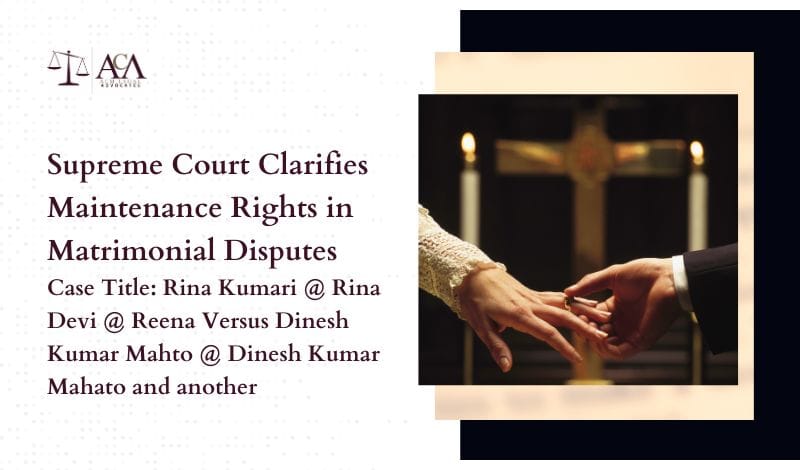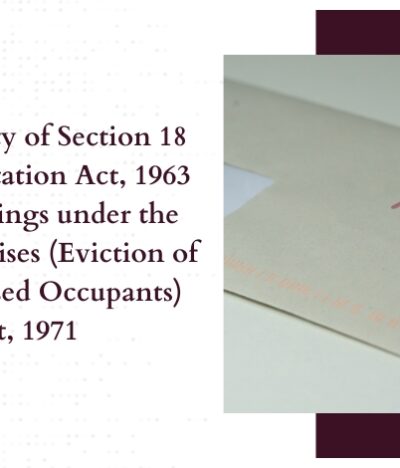Case Title: Rina Kumari @ Rina Devi @ Reena Versus Dinesh Kumar Mahto @ Dinesh Kumar Mahato and another
The Supreme Court of India recently delivered a landmark judgment in the case of Rina Kumari @ Rina Devi @ Reena vs. Dinesh Kumar Mahto, addressing the intersection of matrimonial law and maintenance rights under Section 125 of the Code of Criminal Procedure (CrPC). This judgment, penned by Justice Sanjay Kumar, resolves the contentious issue of whether a husband can refuse to pay maintenance if his wife does not comply with a decree for restitution of conjugal rights.
Case Background
The appellant, Reena, and her husband, Dinesh, were married in 2014 but separated a year later. After several failed reconciliation attempts, Dinesh secured a decree for restitution of conjugal rights from the Family Court in Ranchi. Reena, however, alleged mental and physical harassment, financial demands, and lack of basic necessities in her marital home as reasons for her refusal to return.
In parallel, Reena filed a maintenance claim under Section 125 CrPC, which was granted by the Family Court in Dhanbad, mandating Dinesh to pay ₹10,000 per month. However, this order was overturned by the Jharkhand High Court, citing Reena’s non-compliance with the restitution decree.
Key Legal Questions
The case raised pivotal questions:
- Can a decree for restitution of conjugal rights negate a wife’s right to maintenance under Section 125(4) CrPC?
- How should courts balance civil and criminal proceedings when addressing matrimonial disputes?
Supreme Court’s Observations
The Court held that a restitution decree alone cannot disqualify a wife from claiming maintenance. It emphasized that maintenance laws aim to prevent vagrancy and provide financial security to wives and children, aligning with principles of social justice.
The judgment clarified that non-compliance with a restitution decree must be examined in the context of the wife’s reasons for refusal. Factors like mental cruelty, financial neglect, or other legitimate grievances must be considered before denying maintenance.
The Court further rejected the argument that findings in civil proceedings, such as restitution suits, automatically bind criminal courts handling maintenance claims. Maintenance proceedings are distinct, focusing on the financial needs and dignity of the claimant, rather than strictly enforcing marital obligations.
Outcome
The Supreme Court reinstated the Family Court’s order granting maintenance to Reena. It directed Dinesh to pay arrears in three installments and maintain monthly payments henceforth. The judgment underlines the judiciary’s role in ensuring the dignity and financial security of women in matrimonial disputes.
Implications
This decision reinforces that maintenance laws prioritize the welfare of women and children over procedural technicalities. It also highlights the judiciary’s commitment to social justice, setting a precedent for fair treatment of vulnerable individuals in matrimonial cases.
This case serves as a reminder that legal remedies must be assessed holistically, with a focus on justice and equity rather than mere technical compliance with decrees.






